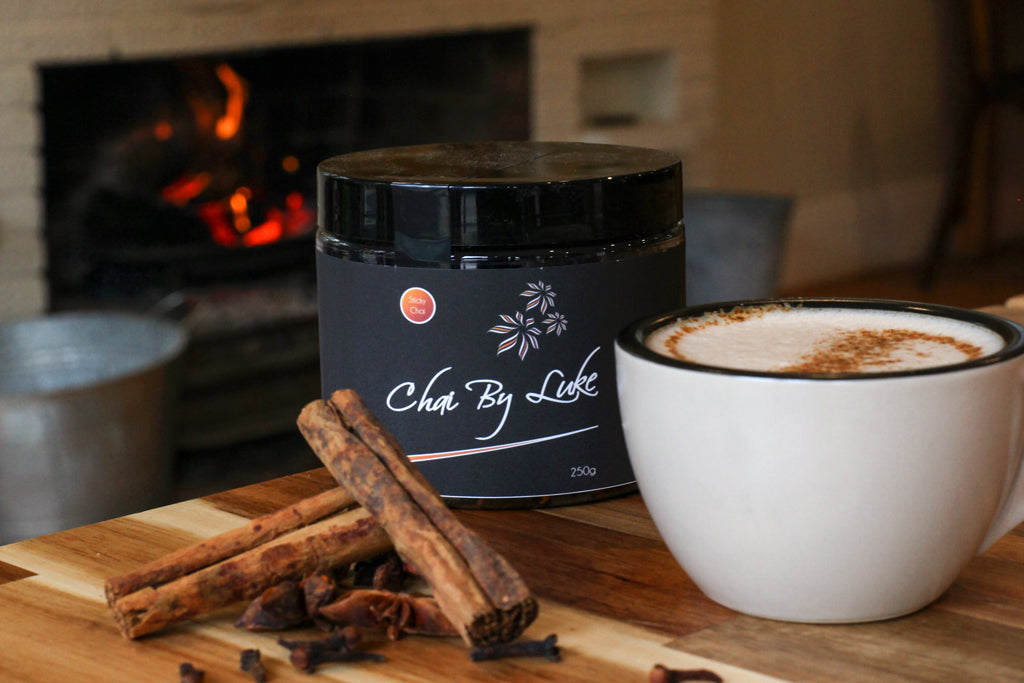How to get more out of your garden with recycled Chai leaves
There is a common misconception that a garden needs to be significant to produce enough food. This couldn't be further from the truth! Many plants have both edible and non-edible uses. All you need to do is find out what plants will work best in your space and then use them as efficiently as possible.
One way of doing this is by using tea leaves from wet chai tea as fertiliser for your garden instead of traditional fertilisers like manure or lawn clippings. These are often too strong for certain types of plants and can even damage soil quality over time if used excessively. Chai leaves are gentler on the environment. Still, they also offer nutrients such as nitrogen, phosphorus, potassium, sodium, magnesium and calcium, and micronutrients such as copper, zinc, iron, and manganese.
Recycled tea leaves also make an excellent alternative to mulch because they can provide a lot of water retention for plants. Tea is a natural source of tannin, reducing evaporation by 50-70%. This means the soil will remain moist for more extended periods, ensuring more excellent plant health.
The benefits of recycling tea leaves from wet Chai tea
The benefits of recycling tea leaves from wet Chai tea include:
- They can reduce water loss from soil by 50-70%
- They can improve soil aeration and drainage; maintains optimum pH levels in the soil
- The tannin acts as a natural herbicide, so it can also help you get rid of unwanted weeds
- Can discourage pests because of their natural antimicrobial properties
It is one of the highest in demand teas in India and other countries worldwide, but it's also one of the most wasteful drinks in water usage. The best way to recycle tea leaves is simply by mixing them with soil, which will keep your garden healthy and help you save money on fertiliser!
Tea is a natural source of tannin, which means it can reduce evaporation by 50-70%. This means the soil will remain moist for more extended periods, ensuring excellent plant health.
Tea leaves are also rich in some of the major nutrient’s plants need to grow, like nitrogen, phosphorus, and potassium. One cup of tea can provide around 20 milligrams of nitrogen (in the form of nitrate), which is more than what you would get from an equal amount (weight) of banana peels or grass clippings. And a single tea bag can provide 13 milligrams of phosphorus and 42 milligrams of potassium, which is good enough for your plants to fight off common pests!
They also improve the overall quality of soil by removing toxins from it. This might not sound too appealing at first- since you're adding something that was once a pollutant- you must remember tea leaves contain a high amount of nitrogen, which is a natural fertilizer. This lets plants remove it from the soil, keeping your garden healthy and toxin-free!
In addition to this, they also help retain moisture in the soil. One problem gardener face every year is water loss caused by evaporation. Tea leaves can reduce this problem by 50% or more, which means your soil will remain moist for a more extended time. This is beneficial as it keeps your plants healthy and saves you money on buying water!
Another significant benefit is they help prevent soil erosion. When tea leaves are mixed with soil, they form a perfect layer for holding the ground together as they decompose into it. In simple words, the leaves will prevent dirt from being washed away by water or strong winds. Ensuring your garden will be lush and green for years!
The best way to recycle tea leaves is simply by mixing them with soil, which will keep your garden healthy and help you save money on fertiliser!
How to recycle tea leaves from wet Chai tea
Having been one of the most popular drinks in India, tea is not only widely consumed, is also one of the least sustainable. Wet Chai tea uses about 30 times more water than a traditional cup of tea does. Luckily, there are many ways to reuse tea leaves to make your garden healthier and save money! The most effective way to do this is to toss the tea leaves in soil, proven to work better than fertiliser. You can also make Chai tea bags or plant festive flowers in recycled Chai containers!
Handy tips on how to recycle tea leaves for a healthy garden
After finishing a cup of Chai, wet the tea bag and put it in your garden. You can also soak used tea leaves in water before adding them to the soil, which will add more nutrients. When planting, make sure you add organic matter, so the tea leaves have something to cling to in your garden. If a garden isn't for you, you can still use tea leaves in your houseplants!
Why you should consider using recycled chai leaves in your garden
In a country like India, where most of the population depends on agriculture for their livelihood, it is essential to be cautious about how much water we use. You can positively impact the environment and save money in your garden by recycling tea leaves from wet Chai tea and incorporating them into your soil, keeping your plants healthy and beautiful without using chemical fertilisers!
Why recycled tea leaves are an excellent fertiliser for your garden
It's no secret, adding organic materials to the soil makes it more fertile. Organic matter helps improve drainage and aeration of the ground, as well as retain moisture. Recycled Chai leaves can provide multiple benefits to the garden:
- Chai leaves are rich in nitrogen, which will encourage the growth of healthy foliage.
- They have a high concentration of phosphorus, which can improve root growth.
- The tannins found in chai leaves helps keep slugs away from your garden! Chai leaves taste bitter to them, and they avoid eating anything that tastes this way.
How to recycle Chai leaves for a beautiful garden
- Put a handful of dried or fresh chai leaves from your last cup of tea into a paper bag and store them in a cool place until you have about 3 cups worth.
- Add the leaves to your composting pile with soil, dead grass clippings, and dried leaves.
- Rake the parts of your yard that need it, so the mixture is evenly distributed throughout the soil.
- Water your garden for a healthy green lawn!
Conclusion
This article has discussed the benefits of recycling tea leaves from wet Chai tea, how to recycle chai leaves for a beautiful garden, and why you should consider using recycled chai leaves in your garden. These tips will help you save money on fertiliser without sacrificing the health of your plants or the environment!
What do you think of recycling tea leaves? Do you have any tips for using tea leaves in gardens? Please share them in the comments section below!

